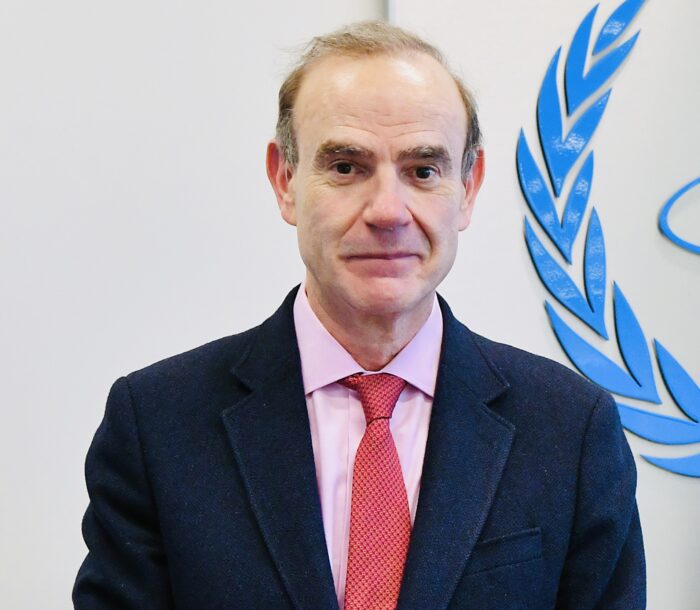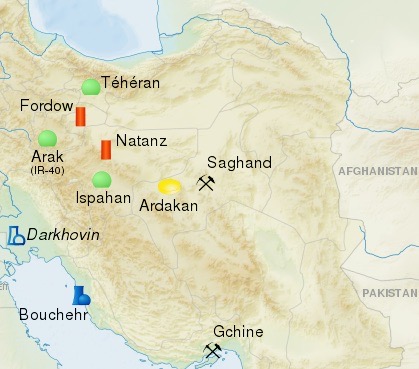The landmark Iran nuclear agreement signed and sealed in 2015 during Barack Obama’s presidency appears dead and buried and resistant to resuscitation.
This assumption, however, is called into question by periodic reports that the United States is trying to revive it, much to Israel’s chagrin.
Donald Trump, the former U.S. president, unilaterally withdrew from the nuclear accord, or the Joint Comprehensive Plan of Action (JCPOA), in May 2018 after condemning its deficiencies. By all accounts, the Trump administration pulled the plug on it at the urging of Israel.
The rationale for the American withdrawal from it was laid out by Mark Dubowitz, the chief executive officer of the Foundation for the Defence of Democracies.
As he wrote, “The (Obama) administration concluded a flawed interim nuclear agreement in 2013, and an even worse final agreement in 2015. The eventual deal trashed decades of bipartisan U.S. policy and multiple United Nations Security Council resolutions calling on Iran to cease enriching uranium or reprocessing plutonium on its soil.
“While it temporarily delayed Iranian nuclear expansion, the deal ceded the right to develop nuclear fissile material to (Iran) and contained a series of sunset provisions under which nuclear restrictions disappeared. These sunsets permitted Tehran to develop, over time, an industrial-size enrichment program, near-zero nuclear breakout capability, and an advanced centrifuge-powered sneak-out capacity, as even Obama himself acknowledged after the deal was concluded.”
Since 2018, the Iranian regime has continually violated its commitments under the original agreement, which granted Iran relief from crippling U.S. and European economic sanctions in return for freezing its nuclear program for some 15 years.
Recently, United Nations inspectors from the International Atomic Energy Agency reportedly discovered that Iran was enriching uranium to 84 percent purity, just six percent short of weapons grade.
In 2020, shortly after he had clinched the Democratic Party’s presidential nomination, Joe Biden said he would try to convert the JCPOA into a “longer and stronger” agreement and would also attempt to curb Iran’s support of regional proxies like Hezbollah and Hamas and rein in its ballistic missile program.
A year later, the United States launched talks in Vienna with Iran and the five major powers — Russia, China, Britain, France and Germany — that had signed the JCPOA.
These negotiations proceeded in fits and starts, but on the eve of Russia’s invasion of Ukraine in February 2022, negotiators appeared certain that a deal could be reached.

“We are nearing the end,” Enrique Mora, the European Union coordinator for the nuclear talks, tweeted. Russia’s representative, Mikhail Ulyanov, predicted that the negotiations were “about to cross the finish line.”
David Barnea, the director of the Mossad — Israel’s external intelligence agency — reportedly concluded that a deal could be struck.

Iranian Foreign Minister Hossein Amir-Abdollahian was optimistic too: “We are on the way to a final stage of a good, strong and durable agreement.”
In fact, this was not the case.
The talks adjourned last September due, in large part, to Iranian demands that fell outside JCPOA’s scope. Iran, for example, insisted that its Islamic Revolutionary Guards Corps be removed from the U.S.’ list of foreign terrorist organizations. The Biden administration rejected this demand.
Shortly after the talks ended, U.S. Secretary of State Antony Blinken blamed Iran for the breakdown: “Iran seems either unwilling or unable to do what’s necessary to reach an agreement, and they continue to introduce extraneous issues to the negotiations that make an agreement less likely.”

On the heels of his remarks, the European Union raised “serious doubts” about Iran’s sincerity to resuscitate the agreement.
Last November, Biden, who has repeatedly said he will not allow Iran to build an atomic weapon, confirmed that the JCPOA had run its course. “It is dead,” he said, “but we are not going to announce it.”

John Kirby, a spokesman for the White House’s National Security Council, elaborated on Biden’s remark: “There is no diplomacy right now underway with respect to the Iran deal. We are at an impasse right now … ”
Robert Malley, the Biden administration’s special envoy for Iran, lambasted Iran. As he put it, “Iran turned its back on a nuclear deal that was within grasp.”
These statements were a source of comfort to Israel’s former prime minister, Naftali Bennett, who quickly took credit for the apparent demise of the JCPOA: “Quietly and wisely, through a series of diplomatic and other actions, we managed to stop the return to the nuclear agreement without creating a rift with the U.S.”
This past January, Blinken told Israeli Foreign Minister Eli Cohen in Jerusalem that the JCPOA was more or less dead, the newspaper Israel Hayom reported.
During his visit to Israel, Blinken said he and Israeli Defence Minister Yoav Gallant both agreed that the United States and Israel needed to act jointly to confront countries, such as Iran, that threaten peace and stability in the Middle East.
A month after his trip to Israel, Blinken acknowledged that the United States no longer considers the revival of the JCPOA as a priority. “The Iranians killed the opportunity to come back to that agreement swiftly many months ago. There was an opportunity on that table that they rejected, an opportunity that was approved by all who were involved.”
Jake Sullivan, Biden’s national security advisor, reiterated that point when he said that the revival of the JCPOA was not “our priority right now.”
This past April, the Axios and Walla news websites reported that the United States was considering a proposal in which Iran would refrain from enrichment above 60 percent in exchange for sanctions relief.
The White House refused to comment on “second-hand rumors,” but the U.S. National Security Council said that Biden believes that diplomacy is “the best way to achieve that objective.”
Last month, Axios reported that U.S. diplomats had visited Oman in an attempt to forge an interim nuclear agreement with Iran. On June 12, Iran confirmed that indirect talks with the United States had indeed taken place in Oman, but that it was not interested in such an arrangement.
Iran’s supreme leader, Ayatollah Ali Khamenei, voiced support for reviving the original agreement on condition that its nuclear program “should not be touched.”

On June 4, the Financial Times reported that Malley had conferred with Iran’s ambassador to the United Nations, Amir Saeid Iravani, in an attempt to kickstart new talks. It was apparently the first direct meeting between U.S. and Iranian diplomats since 2018.
Earlier, Malley expressed hope that the current impasse could be resolved “through diplomatic means” and noted that the Biden administration was “prepared to go down that path.”
On June 9, the White House denied a story in Middle East Eye that the United States and Iran were making progress on a new nuclear agreement. “The report is false and misleading,” a U.S. spokesman said.
On the same day, Prime Minister Benjamin Netanyahu, a fierce opponent of the JCPOA, declared that Israel would not be bound by a deal with Iran.
On June 13, he returned to this theme: “More than 90 percent of our security issues stem from Iran and its (proxies). Our position is clear. Israel will not be bound by any deal with Iran and will continue to defend itself.”
Reiterating that Israel was opposed to the 2015 nuclear deal, Netanyahu doubled down on his view that Iran is intent on building a nuclear device.
Iran insists that its nuclear activities are entirely peaceful intent and practice. In 2003, Khamenei issued a a non-binding Islamic legal opinion, or fatwa, that nuclear weapons of mass destruction contravene the tenets of Islam. He has since cited this fatwa as a reason why Iran does not seek to join the nuclear club.
Khamenei’s claim is self-serving and monumentally implausible, to say the least.
There is no way of knowing, at this juncture, whether the JCPOA can be cobbled back together again. But the chances of reviving it seem slim.
Iran’s violent crackdown on nation-wide anti-government protests, which erupted last summer and have virtually petered out in the last few months, has rendered the possibility of a refreshed nuclear agreement politically untenable in the United States and the European Union.
Iran’s provision of armed drones to Russia to prosecute its war with Ukraine has hardened opinion against Iran, as have recent revelations of an Iranian plot to attack foreign diplomats in Europe.
With the JCPOA hanging by a thread, Iran will be free to further develop its nuclear program and become a full-fledged nuclear power.

If Iran is ever on the cusp of achieving this goal, Israel may well be tempted to attack its nuclear facilities, which are spread around the country and implanted deep underground.
A preemptive Israeli strike might well set back Iran’s nuclear program by several months or years. But by the same token, it would almost certainly touch off a regional war, with all its horrendous consequences, and would encourage Iran to rebuild its nuclear infrastructure.
The JCPOA is an imperfect agreement, as critics have pointed out, yet it kept Iran’s nuclear program in check under the supervision of the International Atomic Energy Agency.
Trump’s withdrawal from it was clearly a blunder, having emboldened Iran, complicated an already complex situation, and brought the Middle East perilously closer to war.
